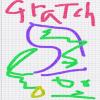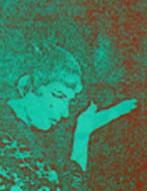Posted 23 August 2007 - 08:37 AM
"Just don't look, just don't look"
Okay, I'm going to post something that Bill White, author of the ... dextromethorphan FAQ ... and also a generally brilliant individual, wrote on another forum. He's writing about HPPD but also about floaters and perceptual "errors" ... take what you can from this:
What you're describing sounds like HPPD -- hallucinogen persisting perceptual disorder. Nobody's sure why it happens, but what's going on is you've become aware of the intermediate stages of visual processing. It's *not* brain damage, just a learned effect.
Normally we filter out the noise and weird patterns in our vision -- we grow up with it there all the time so we learn not to pay attention to it. My suspicion is that psychedelic drugs can make people notice it and pay attention to it, and the more you pay attention to it, the stronger it becomes (some psychedelics may enhance this learning process in the visual cortex). But the point is everyone *sees* this shit, it's just most people filter it out and don't notice it, the same way they don't notice seeing their nose (close one eye and you'll see it), or the white blood cells moving in their retinal capillaries (look up at a deep blue sky and you'll see them), or the scratches on their corneas (which most people have), or their retinal blind spot.
Some people think tinnitus -- ringing in your ears -- is the same way: everyone has ringing in their ears, most people just haven't paid attention and noticed it, but the more you pay attention the worse it gets.
There's no real treatment for it -- antianxiety meds for people who freak out about it -- except to not pay attention. I've had it, by the way. What I did was to pay attention to how it "feels" different to focus on the different layers of visual processing. For example when I'm paying attention to what I'm actually seeing it feels like my vision is "pushed forward", when I pay attention to the noise and afterimages and motion trails and wiggling walls and all that it feels like my vision is "in the middle", and when I'm seeing things in my imagination it feels like my vision is "pulled back".
Once I associated a feeling with the different attentional states, it was much easier to change where my attention was. After spending a few months training myself to move my attention, and then forcing myself to keep my vision "pushed forward" and pay attention to the outside world -- and it helped to avoid looking at certain things like even-toned walls, certain patterns, etc -- it got much, much better. Now I don't even notice it except when I want to.
I had to stay off drugs (all drugs including alcohol) for awhile, too, to make it easier to learn how to change it. Some people have to stay sober permanently, but once I learned how to consciously move my attention I never had a problem even after tripping again. Maybe I'm just lucky tho.
If learning how to move your attention through different stages of visual processing doesn't work, do everything you can to not pay attention to it. Listen to music. Watch TV or movies. Hang out with friends. Play video games. Read. Anything that makes it easier to keep your mind off it.
It's not usually dangerous, if you're ever in a situation where you *must* pay attention your brain will do its job. But it can be distracting as hell.


























































